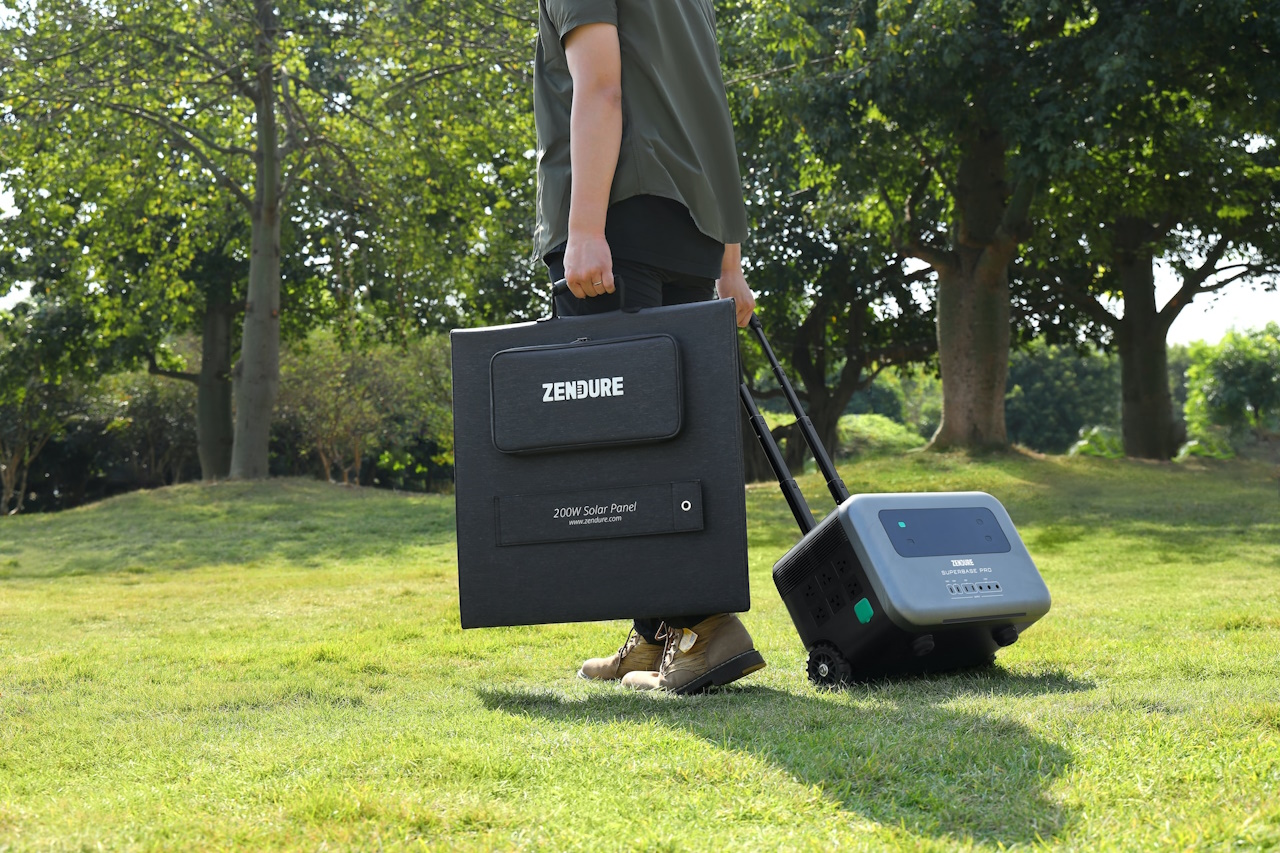Solar-powered generators are innovative devices that utilize solar panels to capture sunlight and convert it into electricity. These generators offer a clean and renewable energy source for powering various appliances, devices, and even providing backup power during emergencies. In this article, we’ll explore the concept of solar-powered generators, their benefits, applications, and considerations when selecting one.
How Solar-Powered Generators Work: A solar-powered generator typically consists of the following components:
- Solar Panels: These panels are equipped with photovoltaic cells that absorb sunlight and convert it into direct current (DC) electricity.
- Charge Controller: The charge controller regulates the flow of electricity from the solar panels to prevent overcharging of the battery or damage to the connected devices.
- Battery Bank: Energy generated by the solar panels is stored in a battery bank, usually made of deep-cycle batteries, to provide power when sunlight is unavailable.
- Inverter: The inverter converts the DC electricity stored in the battery bank into alternating current (AC) electricity, which is the type of power most household appliances and devices use.
- Output Ports: Solar-powered generators are equipped with various output ports such as AC outlets, USB ports, and DC outlets to connect and power different devices and appliances.
Benefits of Solar-Powered Generators:
- Clean and Renewable Energy: Solar generators produce electricity from sunlight, which is a clean and renewable energy source, reducing greenhouse gas emissions and reliance on fossil fuels.
- Quiet Operation: Unlike traditional generators powered by internal combustion engines, solar generators operate silently, making them suitable for indoor use and quiet outdoor environments.
- Low Maintenance: Solar generators require minimal maintenance compared to gasoline or diesel generators, which need fuel, oil changes, and more frequent servicing.
- Versatility: Solar generators can power a wide range of devices and appliances, including smartphones, laptops, lights, refrigerators, and even medical equipment, depending on their capacity.
- Emergency Backup: Solar generators equipped with battery banks can provide backup power during grid outages, ensuring essential devices remain operational.
- Portable Options: Some solar generators are compact and portable, making them ideal for camping, outdoor events, or remote locations where access to the grid is limited.
- Off-Grid Living: Solar generators are a crucial component of off-grid living setups, providing a reliable power source for homes or cabins in remote areas.
Applications of Solar-Powered Generators:
- Emergency Backup Power: Solar generators are excellent for providing backup power during power outages, ensuring that essential appliances and devices like refrigerators, medical equipment, and communication devices remain operational.
- Camping and Outdoor Activities: Portable solar generators can be used to charge smartphones, run camping lights, power small appliances, and maintain a comfortable camping experience without relying on noisy, fuel-powered generators.
- Remote Work: With the increasing trend of remote work, solar generators can power laptops, routers, and other essential equipment, allowing you to work from outdoor or off-grid locations.
- Off-Grid Living: Solar-powered generators are essential for off-grid living scenarios where homes or cabins rely entirely on renewable energy sources for electricity.
- Outdoor Events: Solar generators can provide clean and quiet power for outdoor events, such as weddings, festivals, and concerts, without the need for noisy generators.
Considerations When Choosing a Solar-Powered Generator:
- Capacity: Assess your power needs to determine the generator’s capacity (measured in watts or kilowatts) required to meet your electricity demands.
- Portability: Decide whether you need a portable solar generator for outdoor use or a stationary one for home backup power.
- Battery Type: Consider the type and capacity of the battery bank used in the generator, as it directly affects the runtime and reliability of the system.
- Inverter Quality: Ensure the inverter can handle the wattage and surge requirements of the devices and appliances you plan to power.
- Number and Type of Output Ports: Choose a generator with the appropriate types and number of output ports for your specific needs, including AC outlets, USB ports, and DC outlets.
- Durability and Weather Resistance: If you plan to use the generator outdoors, opt for a model with rugged construction and weather resistance to withstand harsh conditions.
- Charge Time: Consider how quickly the solar panels can charge the battery bank, especially if you need a quick recharge in case of emergency.
Solar-powered generators are versatile and environmentally friendly energy solutions suitable for various applications. Whether you’re looking for a reliable backup power source, planning outdoor adventures, or seeking to reduce your environmental footprint, solar generators offer a clean and efficient way to harness the power of the sun.





